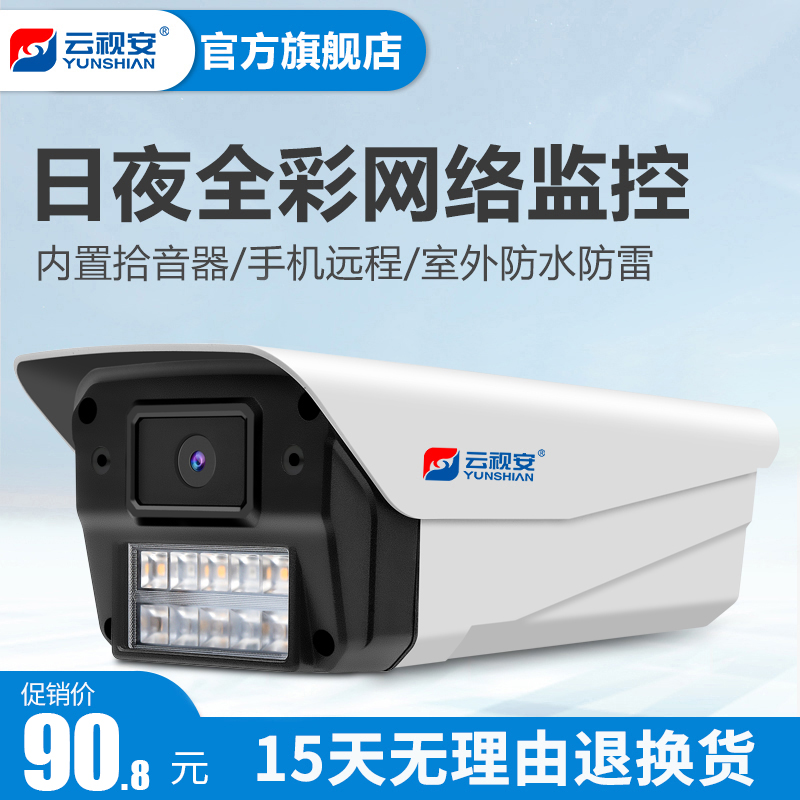办公空间内安防监控系统的设计与实施
甙邵登峰
2024-11-24 09:28:49
0次
办公空间内安防监控系统的设计与实施
一、引言
随着科技的不断进步,安防监控系统在办公空间中的应用越来越广泛。为了确保办公环境的安全与秩序,设计并实施一套高效、实用的安防监控系统显得尤为重要。本文将详细介绍办公空间内安防监控系统的设计与实施过程。
二、设计原则
1. 实用性:系统设计应符合实际需求,便于操作和维护。
2. 安全性:保障信息传输的加密,防止数据泄露。
3. 可扩展性:系统架构应具备可扩展性,方便未来升级和扩展功能。
4. 灵活性:系统应能适应不同办公空间的需求,灵活调整监控布局。
三、系统设计
1. 硬件设计
硬件部分主要包括摄像头、存储设备、网络设备等。摄像头应安装在关键区域,如入口、走廊、办公室等,确保无死角监控。存储设备需具备大容量、高稳定性等特点,以保证长时间稳定运行。网络设备应确保信号传输的稳定性和速度。
2. 软件设计
软件部分包括监控中心软件、存储管理软件、分析软件等。监控中心软件应具备实时监控、录像回放、报警等功能。存储管理软件应能对存储设备进行高效管理,确保数据的安全性和稳定性。分析软件则用于对监控数据进行深入分析,为决策提供支持。
四、实施步骤
1. 需求分析:了解办公空间的实际需求,确定监控区域和设备类型。
2. 设计方案:根据需求分析结果,制定详细的系统设计方案。
3. 设备采购与安装:按照设计方案采购设备,并进行安装。
4. 系统调试:对系统进行调试,确保各部分正常运行。
5. 培训与交付:对使用人员进行培训,确保他们能熟练使用系统,然后交付使用。
五、实施后注意事项
1. 定期维护:定期对硬件设备进行检查和维护,确保系统稳定运行。
 3. 安全保障:加强系统安全防护,防止黑客攻击和数据泄露。
4. 培训与更新:定期对使用人员进行培训,提高他们的操作水平。同时,随着技术的发展,及时更新系统,以适应新的需求。
六、英文翻译
Design and Implementation of Security Monitoring System in Office Space
Introduction:
With the continuous advancement of technology, the application of security monitoring systems in office spaces has become increasingly widespread. To ensure the safety and order of the office environment, it is particularly important to design and implement an efficient and practical security monitoring system. This article will introduce the design and implementation process of the security monitoring system in office spaces in detail.
3. 安全保障:加强系统安全防护,防止黑客攻击和数据泄露。
4. 培训与更新:定期对使用人员进行培训,提高他们的操作水平。同时,随着技术的发展,及时更新系统,以适应新的需求。
六、英文翻译
Design and Implementation of Security Monitoring System in Office Space
Introduction:
With the continuous advancement of technology, the application of security monitoring systems in office spaces has become increasingly widespread. To ensure the safety and order of the office environment, it is particularly important to design and implement an efficient and practical security monitoring system. This article will introduce the design and implementation process of the security monitoring system in office spaces in detail.
 Design Principles:
1. Practicality: The system design should meet actual needs, easy to operate and maintain.
2. Security: Ensure encryption of information transmission to prevent data leakage.
3. Scalability: The system architecture should be scalable to facilitate future upgrades and expansion of functions.
4. Flexibility: The system should be able to adapt to the needs of different office spaces and flexibly adjust the monitoring layout.
System Design:
1. Hardware Design: The hardware part mainly includes cameras, storage devices, network equipment, etc. Cameras should be installed in key areas such as entrances, corridors, offices, etc., to ensure no dead angle monitoring. Storage devices should have large capacity and high stability to ensure long-term stable operation. Network equipment should ensure stable signal transmission and speed.
2. Software Design: The software part includes monitoring center software, storage management software, analysis software, etc. Monitoring center software should have functions such as real-time monitoring, video playback, and alarm. Storage management software should efficiently manage storage devices to ensure data security and stability. Analysis software is used for in-depth analysis of monitoring data to support decision-making.
Implementation Steps:
1. Need analysis: Understand the actual needs of the office space and determine the monitoring areas and equipment types.
2. Design plan: Develop a detailed system design plan based on the needs analysis results.
3. Equipment procurement and installation: Purchase equipment according to the design plan and install it.
4. System debugging: Debug the system to ensure that each part is running normally.
5. Training and delivery: Train the users to ensure they can operate the system proficiently, and then deliver it for use.
Post-Implementation Considerations:
1. Regular maintenance: Regularly inspect and maintain hardware equipment to ensure stable system operation.
2. Data backup: Regularly backup monitoring data to prevent data loss.
Design Principles:
1. Practicality: The system design should meet actual needs, easy to operate and maintain.
2. Security: Ensure encryption of information transmission to prevent data leakage.
3. Scalability: The system architecture should be scalable to facilitate future upgrades and expansion of functions.
4. Flexibility: The system should be able to adapt to the needs of different office spaces and flexibly adjust the monitoring layout.
System Design:
1. Hardware Design: The hardware part mainly includes cameras, storage devices, network equipment, etc. Cameras should be installed in key areas such as entrances, corridors, offices, etc., to ensure no dead angle monitoring. Storage devices should have large capacity and high stability to ensure long-term stable operation. Network equipment should ensure stable signal transmission and speed.
2. Software Design: The software part includes monitoring center software, storage management software, analysis software, etc. Monitoring center software should have functions such as real-time monitoring, video playback, and alarm. Storage management software should efficiently manage storage devices to ensure data security and stability. Analysis software is used for in-depth analysis of monitoring data to support decision-making.
Implementation Steps:
1. Need analysis: Understand the actual needs of the office space and determine the monitoring areas and equipment types.
2. Design plan: Develop a detailed system design plan based on the needs analysis results.
3. Equipment procurement and installation: Purchase equipment according to the design plan and install it.
4. System debugging: Debug the system to ensure that each part is running normally.
5. Training and delivery: Train the users to ensure they can operate the system proficiently, and then deliver it for use.
Post-Implementation Considerations:
1. Regular maintenance: Regularly inspect and maintain hardware equipment to ensure stable system operation.
2. Data backup: Regularly backup monitoring data to prevent data loss.
 4. Training and updating: Regularly train users to improve their operating level. At the same
4. Training and updating: Regularly train users to improve their operating level. At the same
2. 数据备份:定期对监控数据进行备份,以防数据丢失。

【家用网络摄像头】TP-LINK200 300万 400无线摄像头全彩室外家用网络安防监控头语音售价:223.00元 领券价:223元 邮费:0.00

【家用网络摄像头】云视安网络高清全彩夜视摄像头室外家用防水手机远程安防监控器售价:186.60元 领券价:186.6元 邮费:0.00
3. Safety guarantee: Strengthen system security protection to prevent hacker attacks and data leakage.

【家用网络摄像头】水星有线POE摄像头室内家用商用店铺安防监控器高清全彩红外半球售价:155.00元 领券价:155元 邮费:0.00
相关内容
热门资讯
全面理解办公场所安防监控系统的...
本文全面解析了办公场所安防监控系统的部署与操作,包括系统需求分析、硬件设备选择与配置、系统安装与布线...
现代办公设备中的安防监控技术详...
现代办公设备中,安防监控技术如视频监控、入侵检测和人脸识别等,通过实时监测和保护,提高办公环境安全性...
办公设备中的安防利器:监控系统...
办公设备中,监控系统是提高安全与效率的安防利器。它能进行视频、音频监控,及时报警并分析数据,广泛应用...
打造安全办公环境,安防监控系统...
在信息化时代,安全办公环境愈发重要,高效安防监控系统必不可少。本文阐述其重要性及物理、数字和员工行为...
高效办公:智能安防监控设备的应...
本文讨论了智能安防监控设备在高效办公中的应用和选择,涉及视频监控、入侵检测和异常行为识别等技术。选择...
办公空间中不可或缺的监控设备
办公空间监控设备是不可或缺的,包括摄像头、录像机、监控屏幕及软件系统,能确保办公区域安全,提高工作效...
办公楼安防监控系统:保护企业资...
本文介绍了办公楼安防监控系统,旨在保护企业资产和员工安全。该系统通过视频监控、门禁控制等手段,实现全...
智慧办公,安全无虞——探秘现代...
现代安防监控设备具有智能化、高清化、智能分析技术及强大的存储回放功能,保障智慧办公安全无虞,保护企业...
办公区域安全防护:从办公设备监...
办公区域安全防护关键在于设备监控。通过监控办公设备,可提高使用效率、防止滥用和保障企业安全。采取安装...
办公设备中的安防监控:如何选择...
摘要:选择办公设备中的安防监控解决方案需考虑预算、安全性、兼容性、功能性和维护支持等因素。可采取视频...
